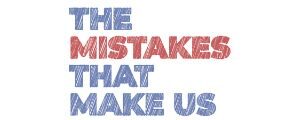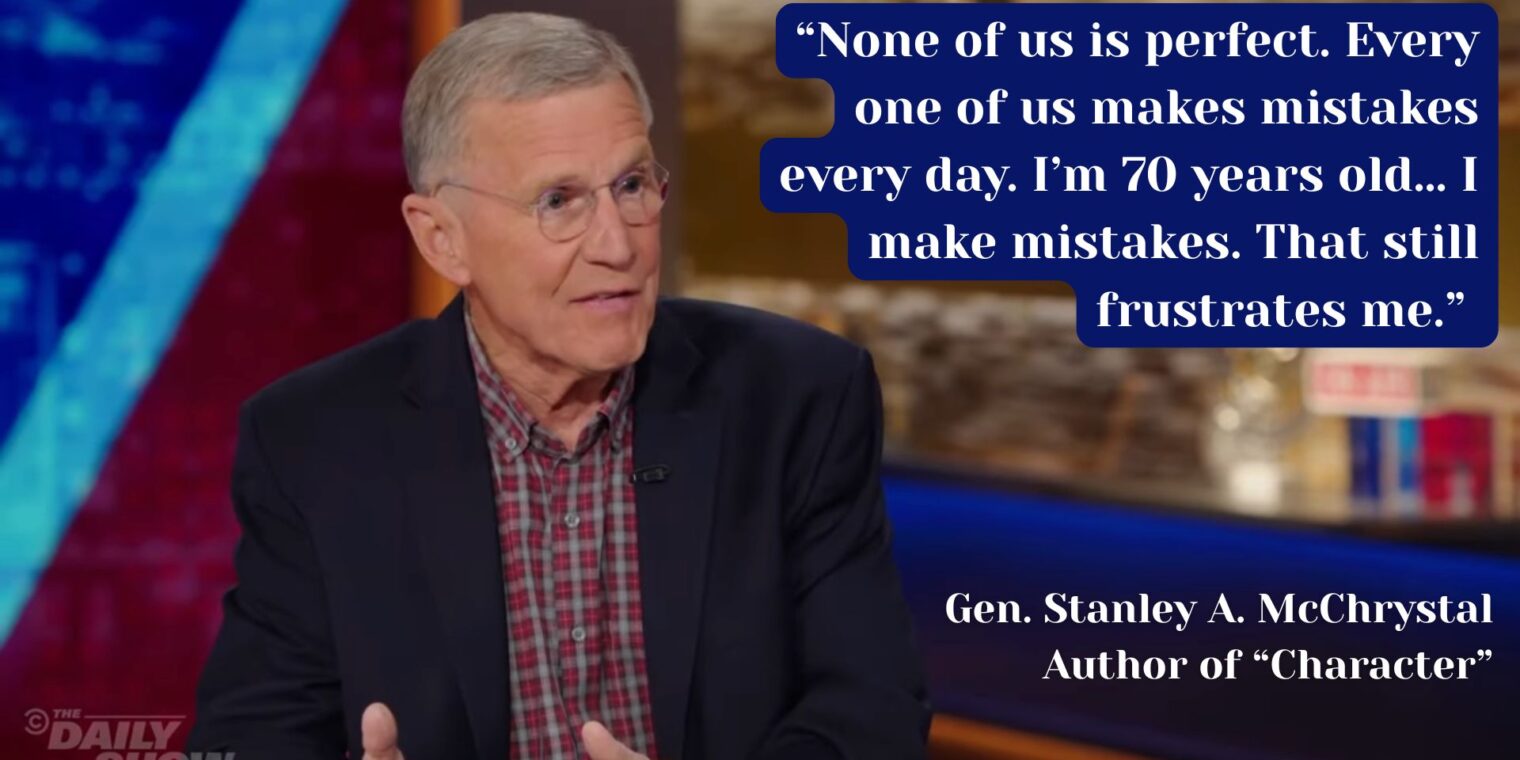⭐⭐⭐⭐ Even four-star generals make mistakes. 🪖
That’s not a punchline. It’s a powerful truth—one we often forget.
On a recent episode of The Daily Show, General Stanley McChrystal, retired four-star general and former commander of U.S. and coalition forces in Afghanistan, shared something striking:
“None of us is perfect. Every one of us makes mistakes every day. I’m 70 years old… I make mistakes. That still frustrates me.”
There’s so much wisdom—and honesty—packed into that short quote. Even with decades of experience, strategic acumen, and high-stakes leadership under his belt, McChrystal is still navigating the daily reality of human imperfection. And he’s willing to say so, out loud, on national television.
That’s not weakness. That’s leadership.
A Pattern of Humble Reflection
This wasn’t a one-off comment. In his 2013 memoir, My Share of the Task, McChrystal reflected openly on his failures and missteps:
“I had to understand that as a leader, owning failure publicly was part of the job… not just my own, but my organization’s too. That doesn’t mean taking the blame for everything—it means taking responsibility for creating the conditions.”
That’s a hard-earned insight. But it cuts to the heart of something I explore in my book, The Mistakes That Make Us: great leaders don’t just tolerate mistakes—they learn from them, model humility, and build cultures where others can do the same.
Why This Matters So Much
We live in a culture that still rewards the illusion of flawlessness. Leaders often feel pressure to be the smartest in the room, to never waver, and certainly to never admit a misstep. That kind of leadership creates fear—especially in fast-moving, high-risk environments like the military, healthcare, or business innovation.
But when a highly accomplished leader like General McChrystal talks openly about making mistakes, it challenges that outdated narrative. It models something healthier. It invites others to be honest about their own learning curves.
As I write in The Mistakes That Make Us, the most effective, innovative, and resilient teams are not the ones with the fewest mistakes. They’re the ones with leaders who normalize learning from mistakes.
They’re led by people who say things like:
- “I got that wrong.”
- “Here’s what I learned.”
- “Let’s make it better together.”
Perfection Isn’t the Goal. Growth Is.
The perfection trap is everywhere. It whispers to us that mistakes are a sign of incompetence. That admitting a misstep will undermine our authority. That if we just try harder, we’ll stop making them.
But that’s not how it works. The most experienced, disciplined, and capable leaders still make mistakes—because they’re human. The difference is in how they respond.
Growth doesn’t come from hiding errors or blaming others. It comes from creating an environment where mistakes become fuel for improvement.
When leaders demonstrate that vulnerability is a strength, they unlock:
- Psychological safety – where team members feel safe speaking up, even when something’s gone wrong
- Continuous improvement – because reflection leads to action
- Real accountability – not blame, but ownership and learning
This isn’t just theory—it’s a cultural shift I’ve seen happen in companies, hospitals, and startups alike. And it starts at the top.
The Mistake-Smart Culture
There’s a term I use: “mistake-smart leadership.” It’s about creating conditions where people learn faster because they aren’t afraid to tell the truth. Where reflection is more common than defensiveness. Where experiments are valued—even if they don’t all succeed.
Get a free download about the behaviors that build this culture.
Mistake-smart cultures don’t ignore mistakes. They examine them without shame, extract insights, and adapt.
They don’t settle for blame or excuses. They move forward.
And they don’t view fallibility as a flaw. They see it as the starting point for better thinking, better systems, and better outcomes.
From the Battlefield to the Boardroom
The best organizations I’ve worked with—whether in healthcare, tech, manufacturing, or startups—aren’t immune to mistakes. But they’ve learned to treat mistakes as data, not as defects of character.
The same mindset shows up in McChrystal’s own team. His leadership consulting firm, the McChrystal Group, often emphasizes “shared consciousness and empowered execution”—two principles that depend on trust, transparency, and learning.
You can’t have those things if people are afraid to admit they got something wrong.
“Leaders who fail to acknowledge their own fallibility are creating a fantasy. And people know when their leaders are pretending,” McChrystal once said in an interview with Harvard Business Review.
Two Questions for You
Let me leave you with two reflection questions—ones I ask often in keynotes, workshops, and coaching conversations:
- 🧠 What’s a mistake you’ve learned from recently?
- 💬 How do you model learning from mistakes in your team or organization?
The answers to those questions can reveal a lot about your leadership style—and your culture.
Even four-star generals get it wrong sometimes. What matters is what we do next.
If this resonates with you, I invite you to explore more in The Mistakes That Make Us—a guide to building cultures of learning, resilience, and psychological safety. Because in the end, the only real mistake is pretending we don’t make them.



